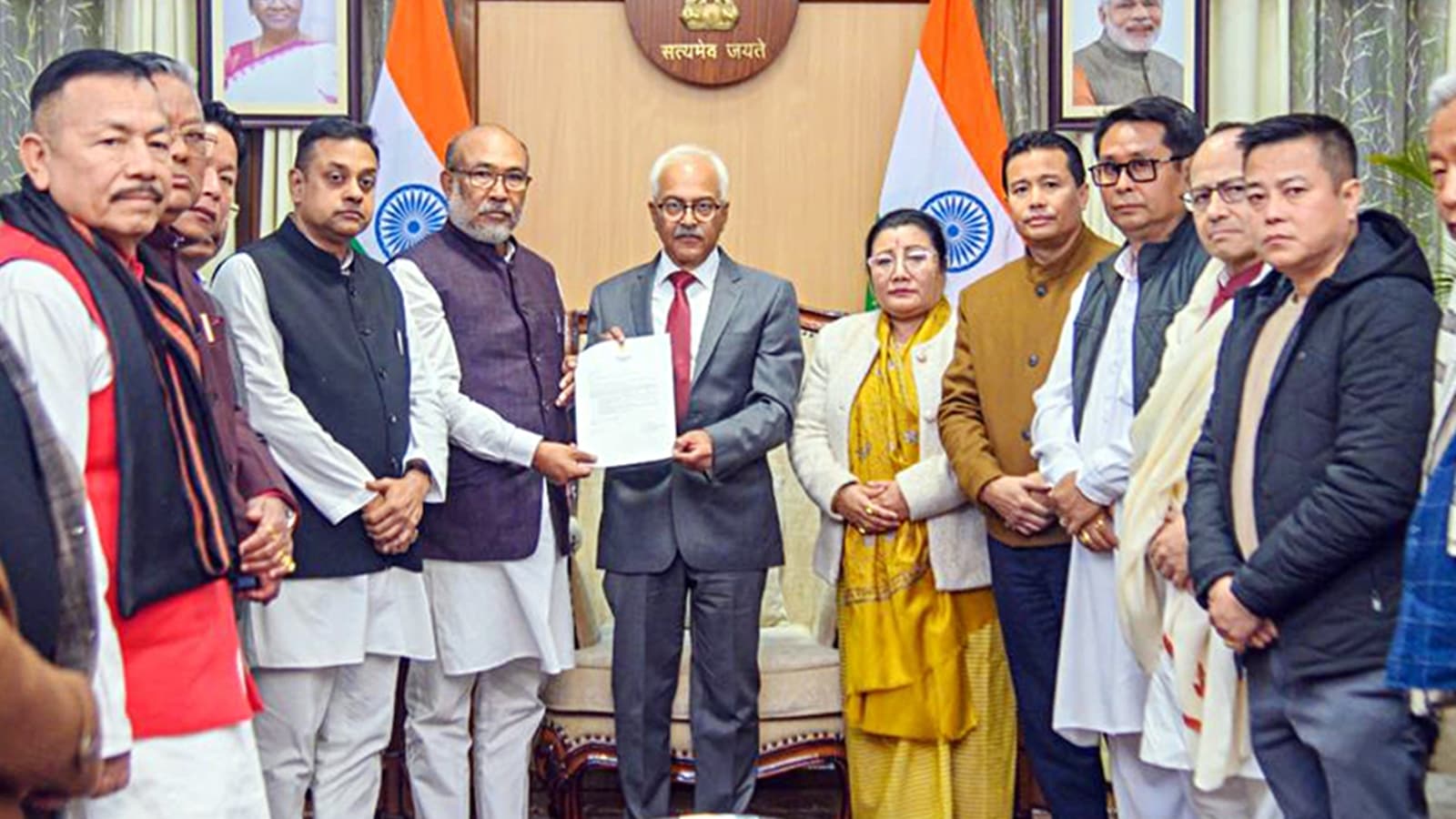 |
|
The prolonged ethnic conflict in Manipur finally led to the resignation of Chief Minister N Biren Singh after 21 months of intense pressure. His departure, submitted to Governor Ajay Kumar Bhalla on Sunday evening, marks a significant turning point in the state's tumultuous political landscape. The resignation followed a crucial two-hour meeting in Delhi with Union Home Minister Amit Shah and BJP national president J P Nadda. This meeting, held on Sunday, underscores the central government's direct involvement in resolving the Manipur crisis and the perceived need for a change in leadership. Singh's trip to Delhi, without any cabinet colleagues, further highlights the gravity of the situation and the potential rift within the BJP's Manipur unit. The timing of the resignation, just before the scheduled assembly session on Monday, suggests a calculated move to preempt further political turmoil and instability.
The pressure on Biren Singh had been steadily mounting. Dissident BJP MLAs, frustrated with his leadership and the central government's handling of the conflict, had intensified their calls for his removal. Reports from The Indian Express indicated that these MLAs were prepared to take unprecedented action during the upcoming assembly session if a change in leadership didn't occur beforehand. This internal dissent, coupled with the Congress's threat of a no-confidence motion, created a formidable political challenge for Biren Singh, effectively leaving him with a minority government. The fact that Singh made the trip to Delhi without cabinet colleagues suggests a lack of confidence, or perhaps even active opposition, from within his own party. The speed at which his resignation was accepted and the immediacy of his return to Imphal suggest pre-planned action by all parties involved.
In his resignation letter, Singh presented five key requests to the central government, all focusing on crucial issues that had defined his tenure: maintaining the state's territorial integrity, cracking down on illegal immigration, continuing the fight against drugs and narco-terrorism, maintaining the revised Free Movement Regime with biometric checks, and the construction of the Indo-Myanmar border. These points reflect his priorities during his leadership and highlight the challenges facing the incoming administration. However, the Congress party criticized the timing of his resignation, arguing that it came far too late and that his earlier resignation could have saved lives and prevented immense suffering. The opposition’s statement serves as a stark reminder of the severity of the conflict and the human cost of delayed political action. The criticism extends beyond the Congress, with Lok Sabha leader Rahul Gandhi reiterating his demand for Prime Minister Modi to visit Manipur and detail a plan for restoring normalcy. Gandhi directly implicated Singh in the prolonged crisis, alleging that his leadership exacerbated divisions within the state.
The resignation of Biren Singh represents more than just a change in leadership; it symbolizes a critical juncture in the Manipur conflict. The sustained pressure from within the BJP, the opposition's aggressive stance, and the central government's intervention all played significant roles in this outcome. The immediate future of Manipur remains uncertain, with the upcoming assembly session likely to be suspended. The state faces a formidable task in rebuilding its fractured social fabric and restoring peace. The incoming leadership will inherit the complex challenges of managing the ethnic conflict, addressing the concerns of the dissenting MLAs, and navigating the delicate political landscape. The success of the next administration will depend on its ability to effectively address the issues outlined in Biren Singh's resignation letter, while also addressing the underlying causes of the ongoing crisis and restoring confidence among all sections of Manipuri society. The eyes of the nation will remain focused on Manipur as it navigates this crucial transition.
